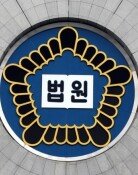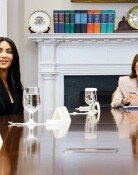[Editorial] Identifying Party Aides
As the political community is bracing itself for the upcoming presidential election, would-be candidates camps are crowded with various aides and strategists. Those aides and strategists with the title of special aide or advisor are deeply involved in developing election strategy and pledges of their candidates. If their side wins the election, they will be the backbone of the administration. Their importance is such that each of the camps should make public the profiles of their aides. Voters can make the best decision when they know not only about candidates but also about the inclination and capabilities of those who surround the candidates.
In the last presidential election, little of the nature of the core aides to then presidential candidate Roh Moo-hyun was revealed. People had just a vague impression that they were 386 generation engaged in democratization movement in the 1980s. The voters did not know that the election campaigners were a group obsessed with outdated leftist ideology and hostility to the mainstream of society. And the result is the excess of ideology, division, confusion and failure of conducting state affairs that now we see. This must not happen again in the upcoming election.
Nonetheless, core campaigners for major candidates are still away from the public eye. A few of them who are publicly known are mainly members of the candidates fan clubs or big-name figures whom the camps invited to raise their camps prominence. The real core campaigners are behind the curtain. In this regard, Grand National Party Chair Park Geun-hye made a significant move last week by disclosing the list of diplomacy and security policy advisors to her.
Also, such anonymity produces serious side effects. Public officials who should remain politically neutral align themselves with a certain candidate by disguising their identities, and scholars move from a camp to another solely based on the possibilities of winning the election. Some scholars were successfully appointed to some positions after participating in the Rohs camp at the final minutes of the election.
The public will grow nervous if they only know the faces of candidates, without knowledge of campaigners. Moreover, what worries the public more is that the ruling party is planning to dissolve and reorganization of the party without any plausible cause and is highly likely to list a surprise candidate through an open primary which is nothing more than a political drama.
A presidential election should be competition among political camps with candidates being at the center, not confrontation among candidates themselves. Each of the camps should let the public know with whom they are bidding to take office and manage state affairs before asking for voters decision.







